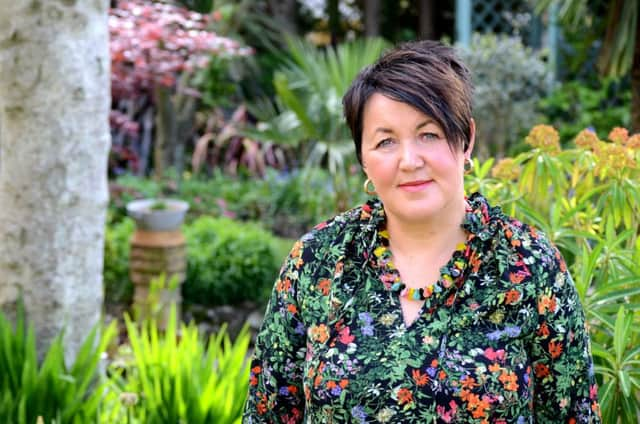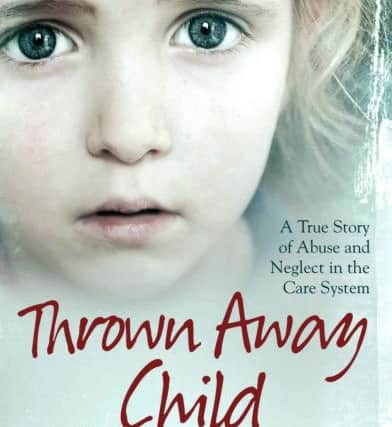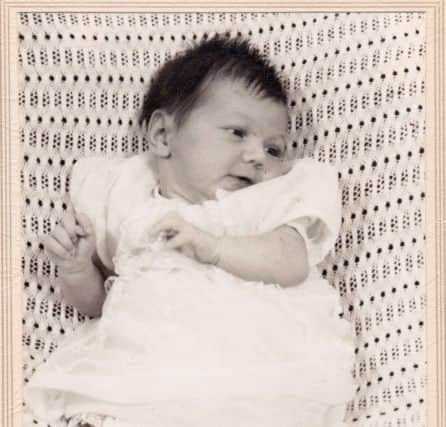REAL LIFE: My foster mother violently abused me '“ and I forgave her


Which is incredible considering Louise endured daily beatings and mental torture at the hands of the woman she called ‘Mum’.
Louise, now 50, has chronicled her bleak childhood in her autobiography, Thrown Away Child. It has become an Amazon best-seller.
Advertisement
Hide AdAdvertisement
Hide AdBut, far from being defined by the appalling things life has thrown at her – given up for adoption by her birth mother, betrayed by social workers and hell from her foster mother – she faces life with a smile and refuses to let her book be called a ‘misery memoir’.


Louise says: ‘People use those titles but I could not. I had to own this. I feel fine, and I would like to stop the lives of people who have been in similar situations from becoming self-fulfilling prophecies.
‘It doesn’t have to been that way. All the trauma I’ve been through has actually made me a very laid-back person.
‘The stresses that normal people have don’t even touch me. I get annoyed about injustice for children, it’s just not good enough. That’s when the fire starts going in my belly.’
Advertisement
Hide AdAdvertisement
Hide AdThe injustice in Louise’s life began the day her birth mother, Pinky, met – when she was 12 – a Moroccan Jew.


Three years later she gave birth to his child. It brought great shame on Pinky’s family – the first generation of Romany gypsies to live in a house.
Social workers took Louise from her mother’s arms and promised she would be given to a loving adoptive family. In fact, Louise was given to a couple who were already under investigation for child abuse.
Louise says: ‘They didn’t want me. They said that from the very beginning. It says that in my social services file. But there was a shortage of foster carers at the time so I was just left with them.’
Advertisement
Hide AdAdvertisement
Hide AdHer foster mother, Barbara, was brought up in a workhouse and the daily beatings she inflicted on Louise and her foster brother William reflected what she had suffered.
Louise says: ‘She used to call me a “worthless little bitch.” She said I’d been thrown away, that no one wanted me and my mother was a whore.’
Neighbours reported hearing the children scream and cry, that they had seen bruising and cuts on the children and that they were thin and tired. After Louise’s book was released a number of her old neighbours visited to say how sorry they were that they did not do more.
She says: ‘My (foster) father was very gentle, shy and very ineffective. He was suffering spousal abuse. I felt sorry for him. But, later, it was pointed out to me that in doing nothing to help William and I, he was complicit.’
Advertisement
Hide AdAdvertisement
Hide AdAged nine, William was removed from the abuse by a court order and ended up in a care home. The siblings did not see each other for 35 years.
Louise finds it hard to believe social workers left her behind knowing what was going on in what she describes as ‘the house of torture.’
She says: ‘Mother decided to get rid of me too. She found out where my birth mother lived and turned up with me at the door wanting to give me back. I was eight.’
She refused and life got even worse. Barbara killed Louise’s beloved Labrador, and her pet chicken had its neck wrung.
Advertisement
Hide AdAdvertisement
Hide AdHer friendships were ended, she was made to wear old-fashioned clothes, and Barbara refused to let her wash. When the school complained Barbara insisted it was because Louise was simply a filthy girl. She was kept off school to keep Barbara company.
In desperation Louise wrote a letter to her birth mother, explaining what was happening and pleading with her to take her back.
Unbelievably, social workers told Barbara. Louise says: ‘She beat me to within an inch of my life.’
Aged 15, Louise fled Oxford and made her way to Portsmouth where her life changed. She found a bedsit and was such a talented artist that Portsmouth Polytechnic took her on – despite having no qualifications.
Advertisement
Hide AdAdvertisement
Hide AdShe went on to lecture in art at the university for more than 20 years.
She is now a full-time artist and campaigns for the rights of children in care. The mum-of-four has fostered many children herself.
So why, considering everything she put her through, did she look after Barbara in her final years?
She says: ‘Virtue is far easier to live with than anger. Anger takes an awful lot of effort. In her dying days she told me how horrific her own childhood was.
Advertisement
Hide AdAdvertisement
Hide Ad‘I just wanted to protect her and give her unconditional love.’
Louise Allen wrote Thrown Away Child following an emotional reunion with her brother William – who she had not seen for more than 30 years.
She promised that she would write their harrowing story of abuse and neglect growing up in a foster family. Louise and her family have been fostering children for four years. They come from a wide range of backgrounds.
She is also a campaigner and activist for the rights of children and young people in care, as well those who look after them.
Advertisement
Hide AdAdvertisement
Hide AdShe says: ‘William and I believed it was all our own fault. When we met he cried and cried and cried and kept saying, “Why didn’t anyone help us?”.
‘What happened to us was everyone’s business. I can’t stress enough how important it is to report concerns. ‘You might be saving a child’s life.’
Louise campaigns at government level for the rights of looked-after children and those who care for them.
She advises police child protection teams, trains foster carers and social workers, and is developing collaborations with universities in psychology and social work.
She is becoming a patron of a children adoption charity and a trustee of arts and education charity.
Go to louise-allen.com